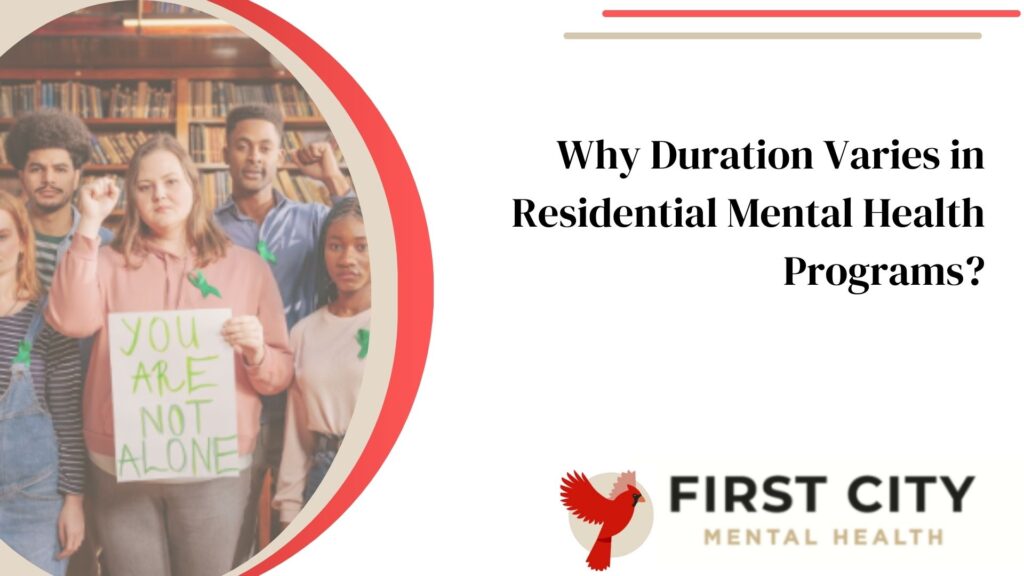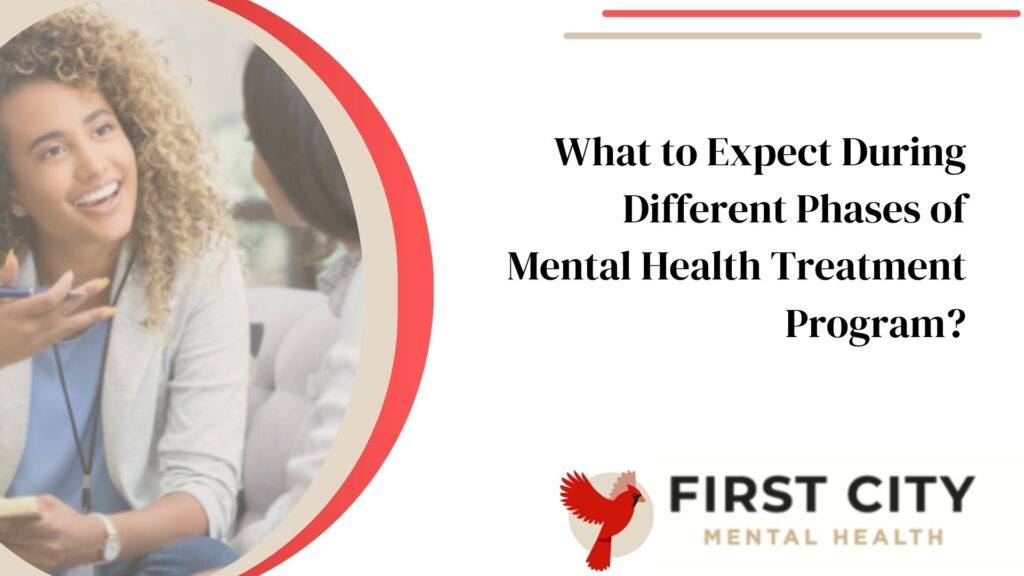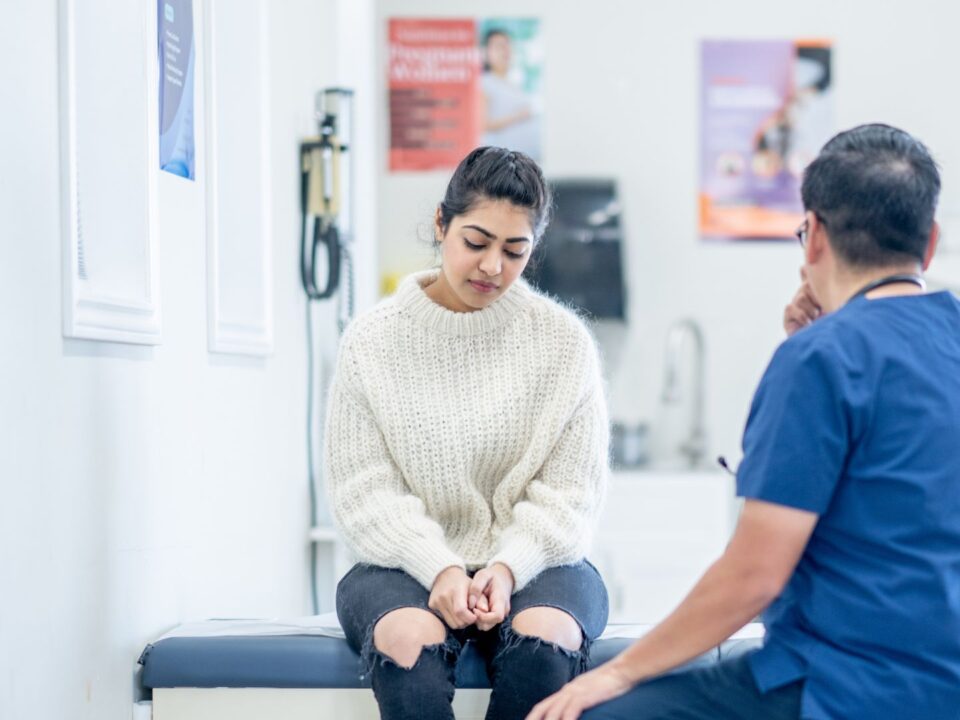
Why Choose a Mental Health Partial Hospitalization Program?
August 1, 2025
What Are The Benefits of Residential Mental Health Programs?
August 6, 2025Dealing with severe mental health issues can be overwhelming, and finding the proper treatment is essential. Many people struggle to understand how long they might need to stay in a residential mental health treatment program, which adds to their anxiety and confusion.
Typically, residential mental health programs last between 14-28 days, but this can vary based on individual needs. Sometimes, treatments might extend for several months for more comprehensive care.
This article will help you understand what determines the length of these programs and what you can expect during your stay. Keep reading to learn more about choosing the suitable duration for adequate recovery.
Key Takeaways
- Residential mental health programs typically last from 14 to 28 days but can extend to several months based on individual needs and the severity of conditions.
- Programs often include medication management, therapy sessions, and skills training tailored by healthcare professionals like psychiatrists and social workers.
- Factors influencing program length include the severity of mental illness, co-occurring issues such as substance abuse or eating disorders, and age-related needs for skill development.
What Factors Determine the Length of Mental Health Treatment Programs?
Various factors determine the length of residential mental health Indiana treatment programs. Each patient has unique needs, and professionals like psychiatrists, psychologists, social workers, and nurses create personalized treatment plans.
These plans often include medication management, therapy sessions, and skills training. The severity of the mental illness plays a significant role; conditions like bipolar disorder or mood disorders may require longer stays to ensure patients can manage symptoms effectively.
Patients with co-occurring issues such as substance abuse or eating disorders typically need extended care. This comprehensive approach ensures they receive proper attention for all underlying problems.
Age also influences program duration—young adults might benefit from more time to develop independent living skills and rebuild life skills under professional guidance in residential settings.
The goal is always to provide support that fosters long-term recovery and emotional stability.
Why Duration Varies in Residential Mental Health Programs?

The length of mental health residential Indiana programs relies heavily on individual needs. Some individuals may need only a few weeks, while others require several months. Factors like the severity of the mental health conditions and the presence of co-occurring disorders play a crucial role in determining treatment duration.
MH PHP (Mental Health Partial Hospitalization) typically lasts 30-45 days, serving as an intermediate step between inpatient care and outpatient treatment. For those needing more extensive support than traditional outpatient therapy but less restrictive settings than entire hospitalization, MH IOP (Mental Health Intensive Outpatient) programs lasting 30-35+ days provide a viable option.
Treatment facilities aim to offer comprehensive assessments that tailor program lengths to best aid recovery rates and overall well-being.
When to Expect Completion of a Residential Mental Health Program?
Program lengths can vary greatly depending on individual needs and treatment plans. For many, the initial stabilization phase within a mental health residential Kokomo program typically lasts for 14-28 days.
Progress depends on personal development, response to therapy, and specific treatment goals.
While some individuals might transition out of residential care after just a few weeks, others may require several months to achieve lasting stability. Each resident’s path is unique and shaped by their individualized treatment plan, designed by medical professionals at the facility.
How Long-Term Residential Mental Health Treatment Works?
Long-term residential mental health Kokomo facilities offer intensive treatment options for individuals with serious mental illness, providing 24/7 care and support. These programs help residents manage their symptoms through a combination of individual psychotherapy, group therapy sessions, and family therapy.
The holistic approach ensures patients receive personalized care tailored to their specific disorders.
The structured daily schedule in these residential treatment centers often includes recreational therapy and skill-building activities designed to foster healthy relationships and coping skills.
Residents participate in various therapeutic interventions aimed at improving their emotional well-being. Support services from addiction specialists and other treatment professionals are integrated into the program to address behavioral problems comprehensively.
Through consistent care, individuals learn to navigate life with greater independence while maintaining stability in their home environment upon completing the program.
How Does Program Length Impact Recovery in Mental Health Treatment?
The length of residential mental health programs plays a crucial role in shaping the recovery outcomes for individuals. Programs typically lasting 14-28 days offer intensive, around-the-clock care necessary for stabilizing severe mental health conditions.
These programs involve 6-8 hours of daily therapeutic activities designed to build solid foundations for long-term recovery. Shorter stays provide sufficient support and intervention for some individuals but may not be adequate for others who require extended periods to work through complex issues.
More extended programs, such as Mental Health Partial Hospitalization (MH PHP) or Intensive Outpatient Programs (IOP), which last from 30-45 days and beyond, gradually transition patients towards independence by stepping down the level of care while offering substantial support.
The duration impacts how deeply therapists can address underlying issues and develop coping mechanisms with their patients. For example, someone attending an MH PHP or IOP gains extra time to practice newly learned skills in real-world settings under supervision before transitioning out entirely on their own.
This structure helps minimize relapse risk by ensuring that the individual confronts immediate symptoms and fortifies strategies against future challenges. Thus, selecting an appropriate program length tailored to personal goals significantly enhances the chances of sustained recovery and overall well-being.
What is the Average Duration of Residential Mental Health Treatment?
Mental health residential treatment programs generally last from a few weeks to several months, depending on the individual’s specific needs. Mental Health Partial Hospitalization (MH PHP) programs typically last 30-45 days, serving as an intermediary step between residential and outpatient care.
Mental Health Intensive Outpatient (MH IOP) programs usually span 30-35+ days, allowing patients to reside in community housing or at home while attending daily treatment sessions.
Regular assessment ensures each patient receives the appropriate level of care throughout their stay in a residential facility. Treatment plans are often customized based on progress and goals set by healthcare professionals.
This flexible approach helps address individuals’ unique challenges during their recovery journey in a residential program.
How to Choose the Right Program Length for Mental Health Treatment?
Understanding the average duration helps choose a program length that aligns with an individual’s needs. Residential treatment for mental health programs usually lasts 14-28 days and offers intensive support and structured care.
For someone requiring more extended assistance, options range from several weeks to several months, tailored to their unique situation.
Considering different levels of care can guide your decision. Partial hospitalization programs (PHPs) provide a higher level of care than outpatient services and typically last 30-45 days.
Mental Health Intensive Outpatient Programs (MH IOP) usually span 30-35+ days for those needing more support than traditional outpatient therapy but are less intensive than PHPs or residential stays.
Assessing the severity of symptoms, personal commitments, and financial considerations will help determine the best fit in residential mental health Indiana facilities or other regional centers.
What to Expect During Different Phases of Mental Health Treatment Program?

Choosing the right program length is crucial for personalized mental health care. Each phase of a treatment program serves specific goals and milestones.
- Assessment Phase:
- Patients undergo comprehensive evaluations by mental health professionals.
- Individualized treatment plans are created based on assessments.
- Involves initial medication management, if necessary.
- Stabilization Phase:
- Focuses on immediate symptom stabilization.
- Includes intensive therapy sessions and constant supervision.
- It often lasts from 14 to 28 days in residential treatment facilities.
- Therapeutic Work Phase:
- Intensive individual and group therapies are conducted.
- Skills training sessions aim to build coping strategies.
- Patients engage in various therapeutic activities like art or movement therapy.
- Partial Hospitalization Program (PHP) Phase:
- Provides a higher level of care than regular outpatient services.
- Typically, it lasts 30 to 45 days, with daily therapeutic sessions, but patients can return home each evening.
- Mental Health Intensive Outpatient (MH IOP) Phase:
- It lasts around 30-35+ days, offering structured support without round-the-clock care.
- A combination of individual therapy, group meetings, and psychoeducation sessions is provided.
- Focuses on skill-building activities to ensure gradual reintegration into daily life.
- Independent Living Skills Training Phase:
- It involves learning essential life skills for independent living.
- Medication management continues under professional supervision.
- Patients practice managing their symptoms outside the residential environment.
- Aftercare Planning Phase:
- Development of a long-term plan for continued support post-treatment.
- Regular follow-ups with therapists and possible involvement in support groups are encouraged.
Each phase is integral in helping patients navigate their journey toward better mental health in well-residential mental health facilities.
Conclusion
Residential mental health facility treatment programs can vary significantly in length. Many factors influence this, such as the severity of symptoms and individual needs. Short-term programs often last around 14-28 days, while some may extend to several months.
Effective treatment incorporates medication, therapy, and daily skill-building activities. Evaluating your specific situation will help you choose an appropriate program duration for recovery.
FAQs
1. How long is a typical residential mental health treatment program?
A typical residential mental health treatment program lasts about 30 to 90 days, but it can vary based on individual needs.
2. What types of services do residential facilities offer in Indiana and Kokomo?
Residential facilities in Indiana and Kokomo provide various mental health services, including emotional support, day treatment programs, and family member involvement.
3. Are there different approaches to treatment in these programs?
Yes, residential mental health facilities use different treatment approaches tailored to each individual’s needs for adequate care.
4. Do other treatment programs have the same length as residential ones?
Other treatment programs may be shorter or longer than residential ones, depending on the patient’s specific requirements.
5. What benefits can one expect from a residential mental health facility?
Residential mental health facilities offer many benefits, such as structured daily routines, group homes for social interaction, and comprehensive support systems.






